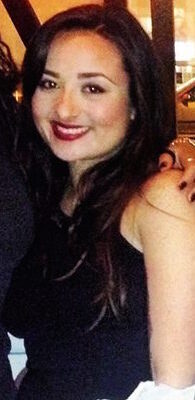Shabnam Banerjee-McFarland - Politics of Cultural Representation
After a series of trial-and-error attempts to start a career in fashion retail and marketing, Shabnam Banerjee-McFarland did a 180 turn and channeled her energy into working with non-profits and learning more about the importance of disseminating change-making policy in all popular culture channels. Since January 2015, she has been working in book marketing with Berrett-Koehler Publishers, a mission-based publishing company in Oakland, CA that publishes books on social justice, conscious capitalism, and self-help in order to “Create a World That Works For All.” Most recently, she is designing an extensive research program to confront the extreme lack of diversity in publishing, in hopes of elevating voices from communities that are underrepresented in the industry. A true SF native through and through, Shabnam continues to fight to maintain the colorful vibrancy of San Francisco & Oakland by writing for her personal blog and the Berrett-Koehler blog.
Area of Concentration Courses
American Studies 101: American Culture in the Atomic Age
African American Studies 142AC: Race and American Film
Media Studies 104A: Freedom of Speech and the Press
American Studies 102: Cultures of Place: California Food
History 125A: The History of Black People and Race Relations, 1550-1861
Thesis
Shabnam Banerjee-McFarland : - Racial Formations In New York Fashion Week under the Obama Era (Class of 2014)
In an industry that walks the fine line of seemingly shallow aesthetics and class-designated “conspicuous consumption,” Shabnam Banerjee-McFarland’s thesis asks how does the New York Fashion Industry affect the way we see race? New York fashion houses, such as Ralph Lauren and Tommy Hilfiger, are arguably some of the most subversive corporate brands in thinking about the politics of beauty, race, and the visual aesthetic due to their constant attempts to steer clear of politics. Shabnam’s thesis deconstructs standards of American beauty, and the ways in which the New York fashion industry cultivates these standards during New York Fashion Week. There is a highly decisive performance that aims to perpetuate white femininity, where whiteness is unmarked and reigns supreme. Subsequently, women of color are routinely compared and contrasted to this paradigm through exoticizing and fetishizing their bodies, ultimately resulting in their erasure. She juxtaposes Vogue’s photo-seriesentitled “Street Style,” or photography captured of those attending the event (fashion bloggers, designers, photographers, journalists, etc) against the meticulously styled models captured on the runway. Representation, as always, matters.
